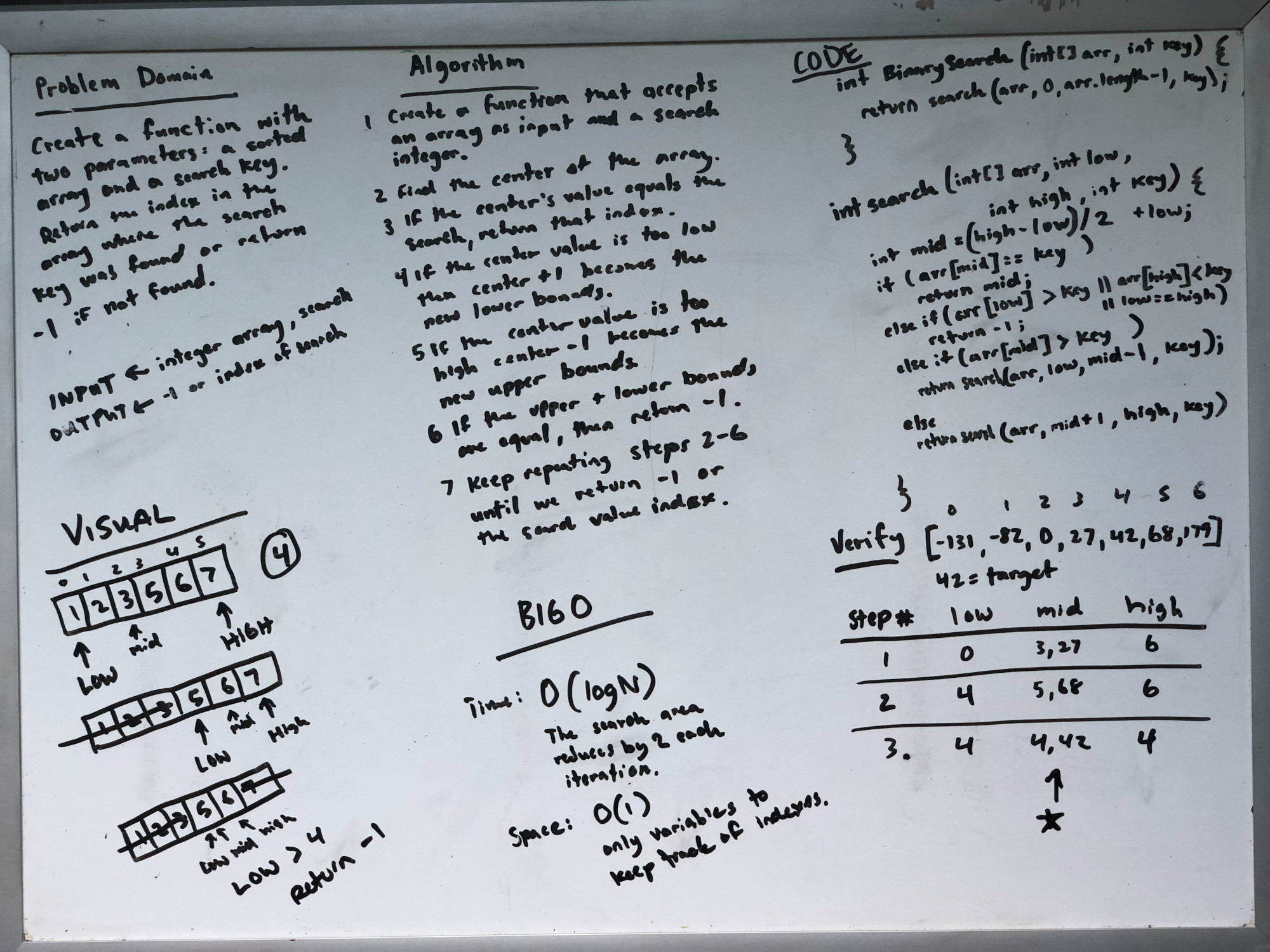data-structures-and-algorithms
Binary Search of Sorted Array
Write a function called BinarySearch which takes in 2 parameters: a sorted array and the search key. Without utilizing any of the built-in methods available to your language, return the index of the array’s element that is equal to the value of the search key, or -1 if the element is not in the array.
Whiteboard Process
Approach & Efficiency
I decided to implement a recursive function because the algorithm I came up with was reducing the search area by half each step and it felt very recurive in nature. I needed to carry a few more variable with me during each recursive loop so I made another function that the BinarySearch function called.
Big O space/time
Because the size of the array that is being searched gets cut in half in each iteration of the recusive loop the time complexity is logrithmic: O(log N).
The space complexity O(1) auxiliary space.
Code
int BinarySearch (int[] arr, int key) {
return search(arr, 0, arr.length - 1, key);
}
int search(int[] arr, int low, int high, int key) {
int mid = (high - low) / 2 + low;
if (arr[mid] == key)
return mid;
else if (arr[low] > key || arr[high] < key || low == high)
return -1;
else if (arr[mid] > key)
return search(arr, low, mid - 1, key);
else return search(arr, mid + 1, high, key);
}
